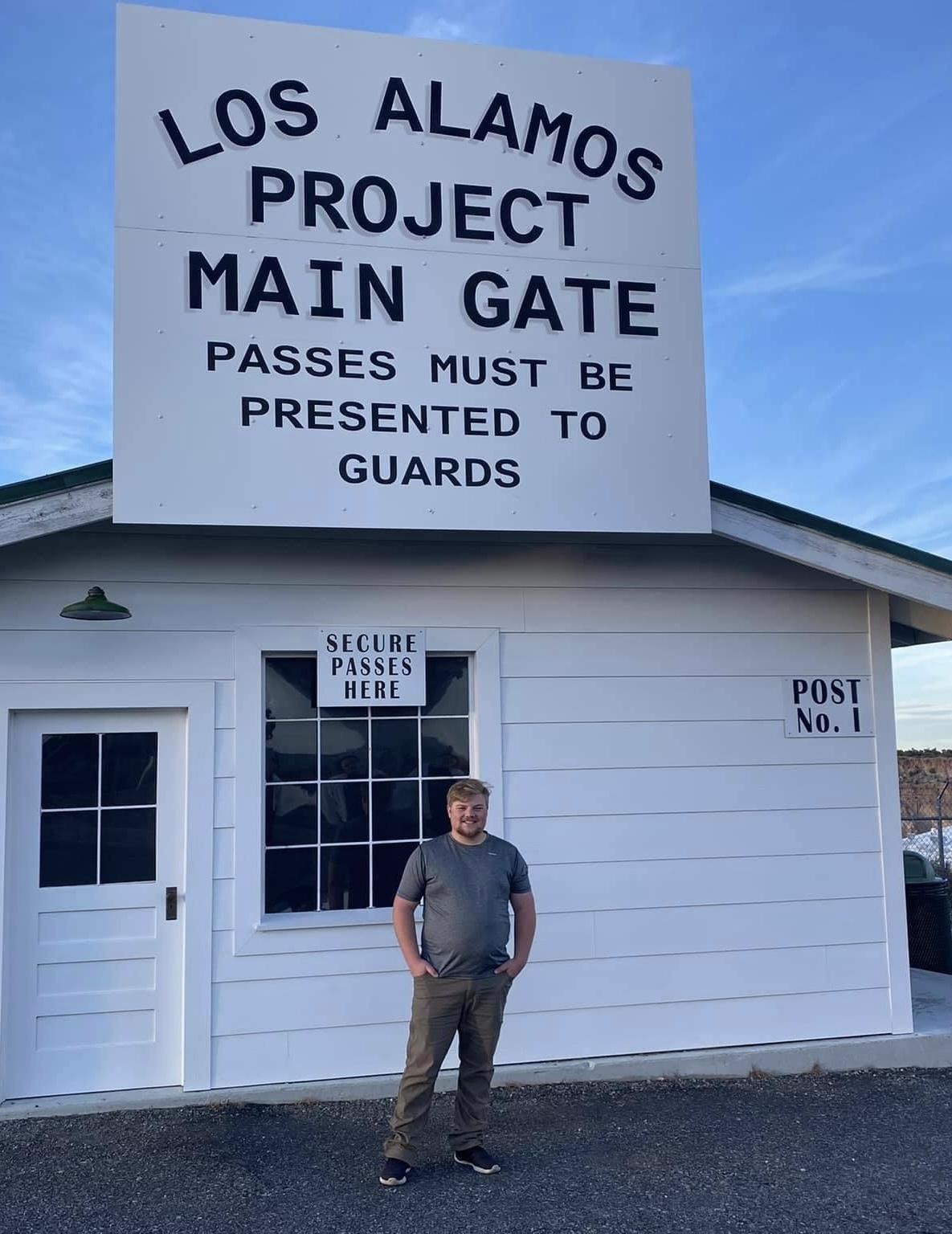Recent BGSU alumnus involved in ‘next generation’ AI research as undergraduate

Chase Somodi ‘22 lauds University’s physics program, research opportunities for driving his interest
By Laren Kowalczyk ‘07
Chase Somodi ‘22 wasn’t entirely confident he’d succeed as a physics major at Bowling Green State University.
He committed to trying it for a semester, assuming the challenge would be more than he was willing to undertake.
It turns out one semester was all Somodi needed to envision a future in physics and begin carving out his niche in the field.
“I got involved in research at BGSU very early, and it skyrocketed my interest,” Somodi said. “Being able to participate in hands-on research and seeing all the things I could do with a physics degree really motivated me to continue in the field.
“I feel really fortunate to have met the professors I did and get into the lab as early as I did. It put me in a unique position to excel in physics.”
Somodi continued taking advantage of opportunities to advance in the field and completed two prestigious internships at a national laboratory where he conducted research on ‘next generation’ artificial intelligence.
Introduction to physics
Somodi began assisting with physics research as a freshman and was working in the lab of Dr. Farida Selim, a professor in the Department of Physics and Astronomy, by his sophomore year.
Selim said Somodi’s passion for science was evident and one of the reasons she offered him a research position in her lab.
“It was very easy to see his passion for science. I picked up on it even before he began working in my lab,” Selim said. ”Chase was very committed to his work and eager to contribute in any way he could.”
In the lab, Somodi worked with Selim on innovative antimatter research called positron annihilation spectroscopy to create a beam of positrons that would collide with electrons, release gamma rays and detect defects in metal and other materials.
“She was using a technique practically unheard of in many areas,” Somodi said. “It was such a cool project to be a part of.”
Working at a national lab
Although Somodi didn’t know it then, that project would become the launching pad for his two internships at the Los Alamos National Laboratory (LANL) in Los Alamos, New Mexico, as a scholar in the U.S. Department of Energy's Science Undergraduate Laboratory Internships (SULI) program.
“The research I did at BGSU greatly benefited me during my internships,” he said. “I was already familiar with many of the materials we were using, and I was comfortable and confident in my research skills, which BGSU played a big part in.”
Somodi worked in the lab’s Center for Integrated Nanotechnology in Fall 2021 and this past summer on neuromorphic computing research, which Intel calls the ‘next generation’ of AI.
Somodi said neuromorphic computing refers to developing microchips that mimic how a brain’s neurons transmit information.
“The idea of neuromorphic computing is to create a microchip that can process data similarly to our brains,” he said. “For example, if you look at a picture of a dog, your brain tells you it’s a dog, and your body expended very little energy to do that. In a sense, that’s what we want the microchip to be able to do — process extremely quickly with very little energy use.”
Somodi said developments in neuromorphic computing are integral to future advancements in machine learning and AI.
“Neuromorphic computing is a very hot topic in materials science and physics,” he said. “It’s probably the biggest problem the computer industry faces right now, and I’m thankful for the opportunity I had to be a small part of moving that research forward.”
Somodi is pursuing a doctorate degree in materials science and engineering at Texas A&M University, a Tier 1 research university in College Station, Texas.
Related Stories
Media Contact | Michael Bratton | mbratto@bgsu.edu | 419-372-6349
Updated: 02/21/2023 10:50AM
